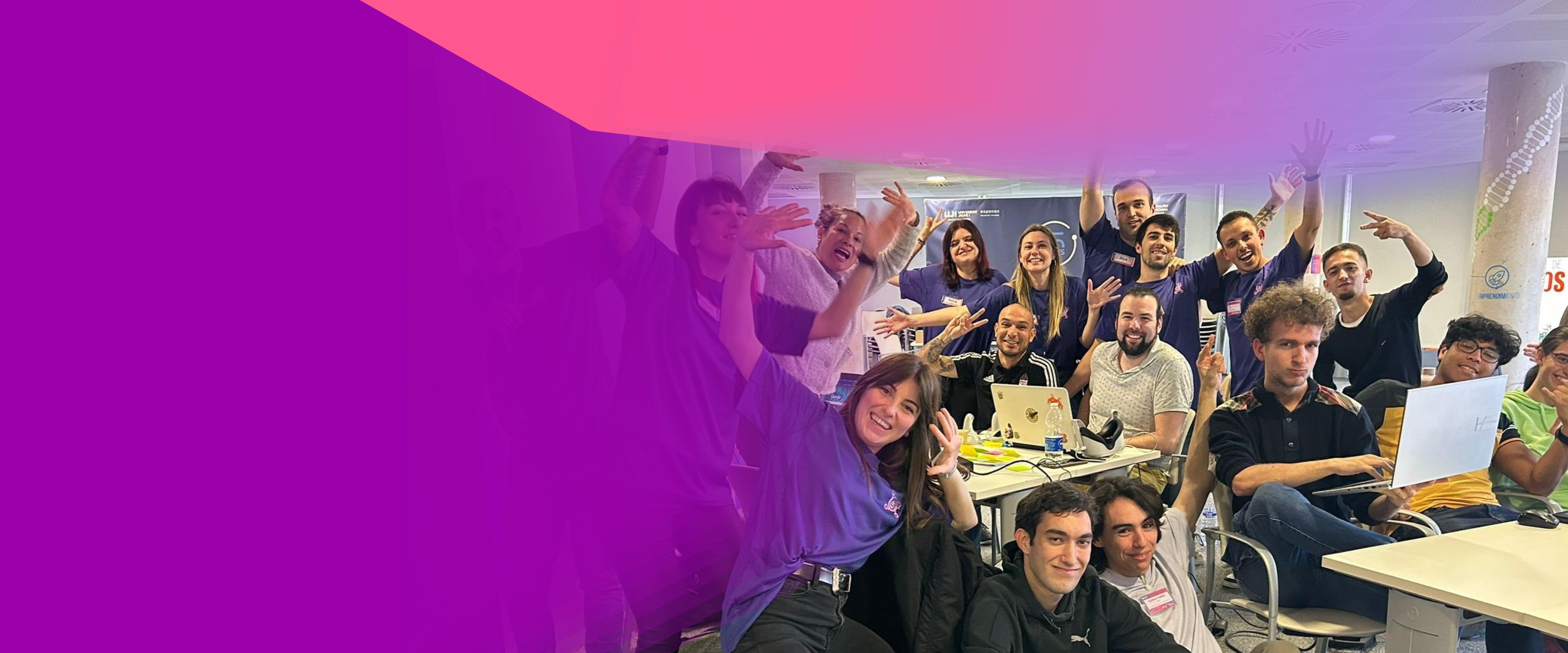The DigiEduHack Podcast returns for Season 3!
Prepare your headphones and clear your schedules because the highly anticipated third season of DigiEduHack, the Podcast is here! With an exceptional lineup of episodes, this season promises to deliver more behind-the-scenes stories of past and future hosts, insightful interviews with winners of previous editions, and engaging discussions that will give you a view into the preparations a digital education hackathon requires, as well as its benefits, challenges, and solutions. This season’s main aim is to showcase that anyone can host a hackathon!
Whether you’re an avid DigiEduHack follower, a past participant, someone who has hosted a local hackathon in the past, or if you have just now learned what DigiEduHack is, this new season promises to get you up to speed with all you need to know about this year’s edition of DigiEduHack!
The first episode welcomes Jason Tonkin, CEO of ThinkSTEAM, an organization that aims to empower youth by enhancing digital literacy, as well as a passionate educator at his local school in Mauritius. Jason, who hosted a hackathon at his school as part of the 4th edition of DigiEduHack, imagines the future of digital education as accessible and stimulating and aspires to help shape a classroom that reflects that future.
On the second episode, we welcome Rodica Neagu, Deputy Project Director at the Startup City Cahul project led by the Moldovan Association of ICT Companies and financed by the European Union and Sweden. The project aims to harness and strengthen the potential of the digital economy and enhance regional competitiveness. Speaking about last year’s hackathon, Rodica says that they "aimed to develop skills in problem-solving and to demonstrate and build upon digital skills among young talent, to foster innovation among youth in Southern Moldova."
In our third episode, we hear from Angela Jafarova, Co-Founder of Datorium, one of the leading programming schools in Latvia. Angela underlines the significant role of start-ups in digital education, reminding us that “start-ups are more flexible” and that “they can bring ideas and then partner with institutions to push these ideas and innovations into the educational system”.
For our fourth episode, we introduce Alessandro Tomasi, Co-Founder and Coach at Kimitisik, an EIT Deep Tech Talent Initiative Pledger that designs, develops, and leads innovative learning journeys, consisting of courses, learning experiences and events facilitating collaborative and hands-on learning. When asked what made him host a hackathon, Alessandro said that in his company they “really think that the educational system must be improved in so many ways that it is important to innovate the sector and the hackathon is a great catalyst to capture ideas and understand our learners' thinking.”
In the fifth episode, the mic is taken by Mert Sözer, Project Coordinator at VitaTiim, a non-formal learning center in Estonia, aiming to create a supportive and inspiring environment for people, one that allows them to create a better version of themselves through different projects around the world. Mert reflects about NGOs participating in DigiEduHack, sharing that even though it might be challenging and resources are limited, the benefits outweigh the challenges.
For the sixth episode, we welcome Silvia Avellaneda, Content Coordinator at Vodafone Foundation in Spain, a foundation which combines Vodafone's charitable giving and technology to create long-term, sustainable programmes that help to address the world’s most pressing problems. Silvia talks to us about the digital divide, the decreasing number of women in STEM fields and the reasons why they decided to join the DigiEduHack journey. “The second step of creating the hack was deciding who will participate in the hackathon so here we decided to partner with a truly important ally for the Vodafone Foundation, which is the university of Salamanca, because who better to take on an education challenge and come up with solutions to motivate girls towards technology, than their future teachers.”
In the seventh episode, we are joined by Ján Rehák, National Director of Entrepreneurship Business School and professor of entrepreneurship, business development and business model innovation at the Tecnológico de Monterrey university. Jan shares with us the benefits that the DigiEduHack initiative has had for their students and their professors, as well as how extraordinary the experience has been for the university. He recommends all universities to participate and he suggests starting small. Jan also underlines the importance of creating synergies within the university as that skyrocketed their hackathon to four different campuses.
For our eighth and final episode, we move to the other half of DigiEduHack, the participants. And this time, we welcome winners of the 2023 DigiEduHack, Johannes Fagerberg and Manuela Montinaro. Johannes is a recent graduate of innovative programming from Linköping University as well as a programmer and designer for the ADAPTATEC solution proposed for the “DigiEduHack @TEC CDMX powered by IFE & Emprendimiento Tec” challenge. Manuela is a teacher of mathematics and physics at IISS Trinchese (Secondary school) and lead of the solution IVAN, international volunteering association network proposed for the challenge “Schools as an Agent of Change Towards Sustainability”.
Recording these interviews fueled us with enthusiasm and the certainty that they will inspire you as much as they have inspired us! Find the new episodes on Spotify and Soundcloud and get ready to host your own hackathon at your workplace, whether it’s a school, public institution, startup, NGO or anything in between. Let’s imagine the future of digital education together!

